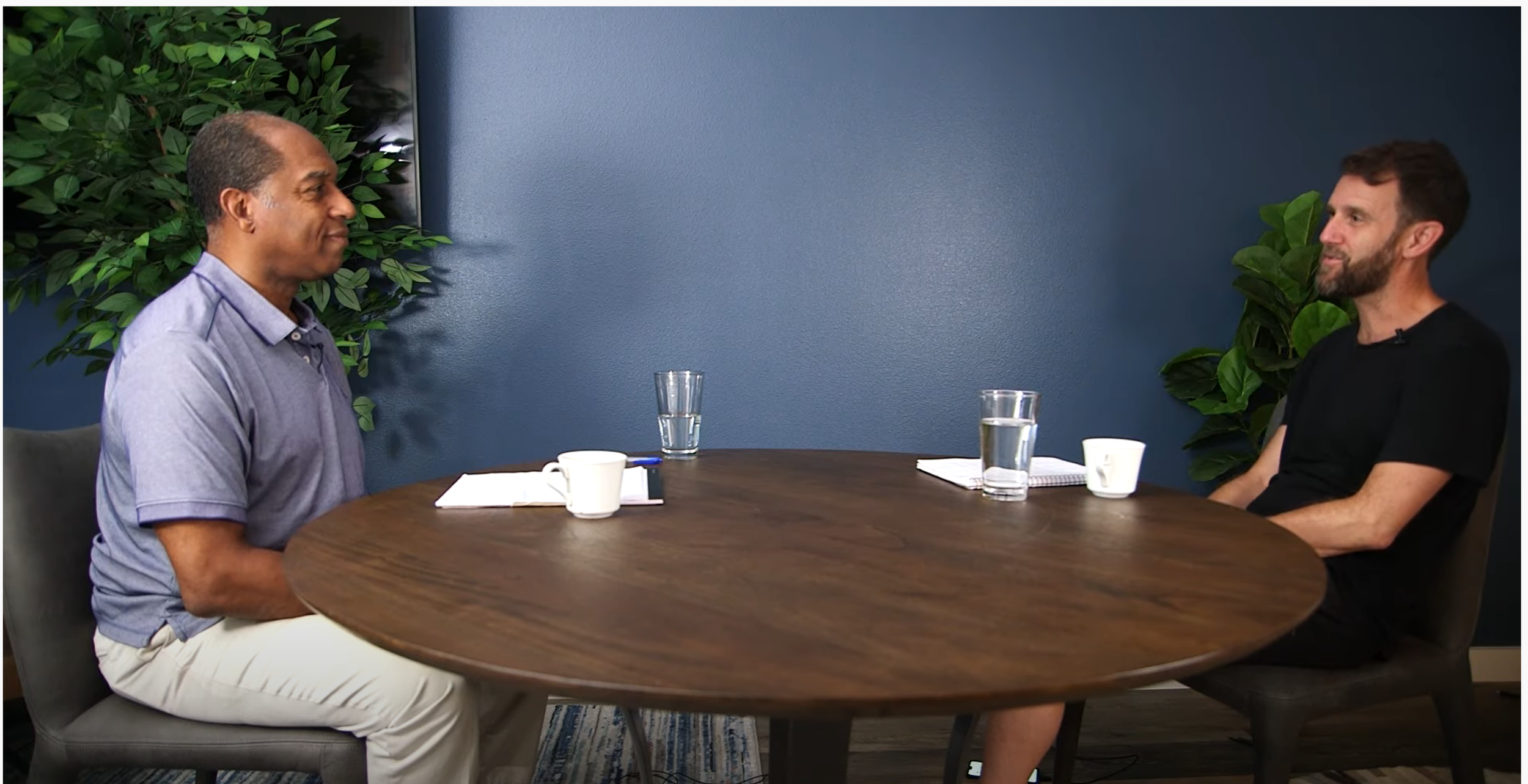The Art of Cultural Conversation
A week after the horrific, brutal murder of George Floyd, I appeared as a guest on the UK platform, Rebel Wisdom. The moment was still raw within me, and millions of people around the world had taken to the streets in protest, defying Covid lockdown rules.
That Rebel Wisdom episode was a huge learning experience for me. Not only was it—as far as I know—the largest audience (20k+) for any interview I’ve done to date, but the strong responses from people who disagreed vociferously with some of my claims and who gave vigorous counter-statements took me aback.
If I were younger, I might have taken such comments personally. But as a mature man of nearly 60 years living, I took it in stride and learned from it. I wasn’t triggered because I’m very clear on my values and intentions, and because I strive to embody the JLP principle of antagonistic cooperation, which views challenge and conflict as opportunities for growth and learning. And, as an American grounded in pluralism, I’m used to the back-and-forth of ideological intensity.
Now, over two years later, I’m more seasoned in such settings. Which is why for my second solo appearance on Rebel Wisdom, released this past weekend, I was able to play behind the beat and lay in the cut in conversation with Rebel Wisdom’s founder, David Fuller.
We discussed the distinction between race and racialization and culture proper, a more mature (at least in my reckoning) way to view cultural appropriation, and the tributaries that comprise Black American culture and American culture writ large. We also dive into the power of Black American music since the 19th century and outline a basic lineage of blues idiom wisdom, centered on the Ralph Ellison-Albert Murray Continuum. I also counter-state the positions of Robin DiAngelo and Ibram X. Kendi, and say some choice words about, and directly to, Cornel West.
I invite you to check out the half-hour conversation here.
FBT’s Expanded Version of “Can Civic Jazz Resolve the American Dilemma”
The art of cultural conversation, art, rhetoric and American democracy are the themes of an expanded version of “Can Civic Jazz Resolve the American Dilemma,” which originally appeared on this forum last year. Not only did I flesh out the essay in what, for me, feels like a more rounded and more detailed fashion for better comprehension by readers, but the President of Free Black Thought, Dr. Erec Smith, penned an introduction for the essay, published today at the Journal of Free Black Thought. As a scholar and professior of rhetoric and composition at York College, he is eminently qualified to assess the validity—or lack thereof—of the perspective I took in my essay that riffs on a significant book by rhetorician Gregory Clark, Civic Jazz.
Here's Dr. Smith’s intro:
Many musicians, theorists, and historians cite Jazz as America’s most distinct musical contribution to the world. However, people acknowledge Jazz less often as the musical representation of America, itself. In “Can Civic Jazz Resolve the American Dilemma?”, Greg Thomas makes a compelling argument for the latter, and he does so by exploring Gregory Clark’s interpretation of Jazz through the ideas of Kenneth Burke—arguably the most important rhetorical theorist of the 20th century—and their collective relevance to democracy and civil society.
As a rhetorician, I may be more sympathetic to framing Jazz in terms of Burke’s rhetorical theory, especially his ideas on individuality and consubstantiality, i.e. the interdependence of humans and how such interdependence informs our ability to communicate and work together, regardless of a diversity of experience and viewpoint. Thomas understands Clark’s point that both Jazz and rhetoric contain, “the potential to move us from one state of mind and attitude to another.” Jazz is an emergent language, one that emanates naturally from the dialectical nature of human interaction. One need not study rhetoric or Jazz to know this. One needs only the experience of navigating a profoundly pluralistic society like the United States of America.
So can Jazz be interpreted as, in essence, the rhetoric of US citizenry? Thomas and Clark—as well as thinkers like Robert O’Meally, Susanne Langer, Ralph Ellison, John Dewey, and even Walt Whitman—help us see that Jazz necessitates individuality, the rhythmic coexistence of competition and cooperation, adaptability, respect for diversity, equality, and spontaneous order, all indicative of the classical liberalism on which America is meant to be based. Jazz, then, is the generic theme song of a robust civil society in which, by necessity, differences must be negotiated and commonalities accentuated for each individual’s benefit.
For Thomas, the confluence of the aforementioned authors produces a convincing argument that Jazz is the “moral and artistic re-enactment of American democratic principles.” That is, believers in what some call an American civic religion say that a civil society derived from a pluralistic and free citizenry relies on the feeling in form that is “collective improvisation,” a term that accurately describes Jazz performance. Jazz, itself, has a kind of transcendent spontaneous order, for a Jazz ensemble, like an ideal American citizenry, emerges out of the confluence of competition and cooperation, individual self-interest and communal consubstantiality, in a context of variety and free expression. Like Jazz, America “swings.”
Thus, through his reading of Clark, Burke, and others, Thomas answers his titular question: Jazz is America; acknowledging that may assuage the American dilemma.
Respectfully, Erec Smith, Ph.D.
Dr. Erec Smith
I invite you to read the entire work on their site—and to consider subscribing. I find their heterodox perspectives to be refreshing, and you may also.



